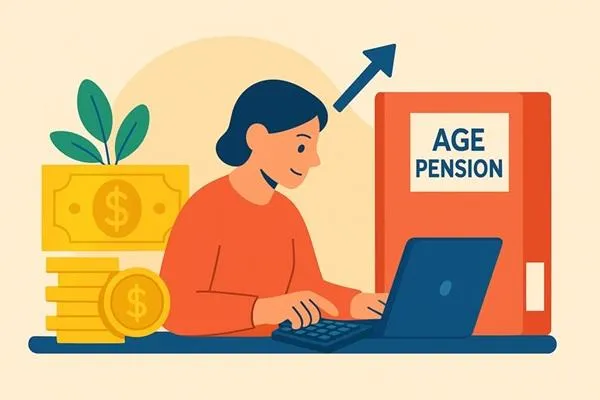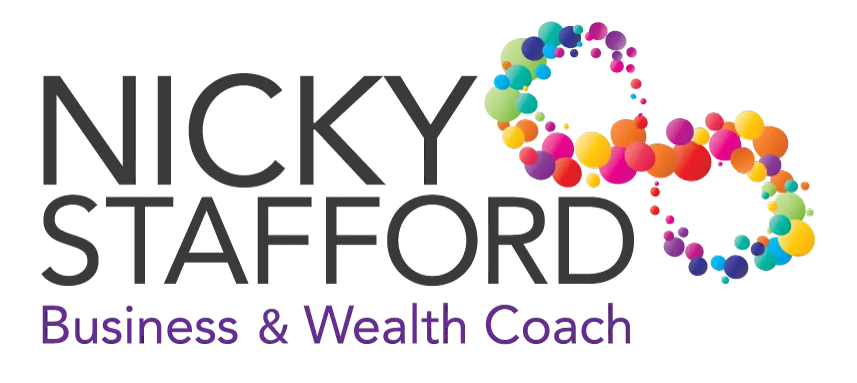ARTICLES
Home / Articles

5 Strategies to Maximise Your Australian Age Pension (2025 Guide)
The Age Pension is more than just a payment; it’s a foundation for a comfortable and confident retirement. While the first step is understanding your eligibility, the next is knowing how to build a strategy that makes the most of it. For many Australians, a few key decisions can make a substantial difference to their long-term financial wellbeing.
Here are some key areas to explore that go beyond the basics of the Age Pension.
1. The Power of Your Primary Residence
Your family home is not counted in the assets test. This is a powerful rule that savvy retirees can leverage with the right strategy. Instead of holding a large amount of cash or investments that are subject to the assets test, you could explore using those funds to:
Pay Down Your Mortgage: If you still have a mortgage, paying it off will reduce your assessable assets and, in turn, may increase your pension payments.
Invest in Home Renovations: Spending on home improvements—like a new kitchen, bathroom, or a solar panel system—can improve your quality of life and add value to your property. Since these funds are no longer considered “assets” by Centrelink, they won't affect your pension entitlement.
Consider Downsizing (Carefully): While your home is exempt, the cash proceeds from downsizing can become an assessable asset. However, if managed correctly (for example, by using the proceeds to pay off debt or invest in your new residence), this can be a viable strategy. Understanding the specific rules and time limits is crucial to making this move work for you.
2. Reassessing and Managing Your Assets
Many retirees are unaware of how their assets are valued for the Age Pension assets test. A regular review of your assessable assets is an empowering way to ensure you’re getting the most from your pension.
Review Your Valuations: Assets like cars, caravans, and home contents are often over-valued. Centrelink assesses these at their current second-hand value, not their purchase price. Regularly updating these valuations can significantly lower your total assessable assets. For example, a car you bought for $30,000 may now only be worth $10,000.
Understand the “Deeming” System: The income test uses a system called “deeming” for financial assets. This means Centrelink assumes your assets earn a certain rate of income, regardless of what they actually generate. Being aware of this is a key part of building an effective investment strategy in retirement.
3. A Key Superannuation Strategy for Couples
If you are part of a couple where one person is of Age Pension age and the other is not, there is a powerful strategy to consider. Superannuation is exempt from the assets test until the owner reaches Age Pension age. Therefore, you can strategically contribute to the younger spouse’s super account.
This can be an effective way to reduce the couple’s overall assessable assets, potentially shifting them from a part-pension to a full-pension entitlement. This is a perfect example of where strategic guidance can make a significant impact, as navigating the contribution rules requires clarity and confidence.
4. Leveraging Other Government Payments and Concessions
The Age Pension is the main gateway to a range of other benefits. Knowing what you might be entitled to can put more money in your pocket and reduce your expenses.
Commonwealth Seniors Health Card (CSHC): A great safety net if you don't qualify for the Age Pension. It has a generous income test and no assets test, providing access to cheaper medicines and other concessions.
Rent Assistance: If you’re a renter, this payment can be a welcome addition to your fortnightly pension.
Other State and Local Government Concessions: Don’t forget to check for discounts on utilities, transport, and council rates. These vary by state and local area, so it's worth doing some research.
5. The Work Bonus Scheme and Earning in Retirement
Retirement doesn’t have to mean the end of work. The Work Bonus scheme encourages pensioners to continue earning by allowing a certain amount of income to be received without affecting the pension.
Accumulating the Work Bonus: The first $300 of fortnightly employment income is not counted in the income test. If you earn less, the unused amount accrues in an “income bank” up to a maximum of $11,800. This bank can then be used to offset future earnings, giving you the flexibility to take on short-term work without impacting your pension.
Partnering with a Wealth Coach for Clarity and Confidence
These strategies can make a meaningful difference, but it’s important to be aware of the fine print. Centrelink may apply deprivation rules if spending seems excessive, downsizing can trigger complex rules, and moving assets into a spouse’s super can lock away funds.
This is where working with a wealth coach can be invaluable. A coach doesn't just tell you what to do; they partner with you to build your understanding and confidence around these complex rules. The goal is to empower you to build a financial roadmap that aligns with your personal circumstances and retirement goals.
If you're ready to gain clarity and take control of your retirement finances, exploring these strategies with a coach is the perfect next step.
Get Inspired — Join Our Mailing List
Yes, You Can Live a Wealthy Life
You have a coach for your fitness, why not have one for your wealth?
Get started with a free, no-obligation chat.
General Advice Warning
All strategies and information provided on this website are general advice only which does not take into consideration any of your personal circumstances. Please arrange an appointment to seek referral to the correct professional for financial, legal, tax or credit advice before acting on any information contained in this website. Nicky Stafford operates in Infinite Wealth Partners Pty Ltd. ABN: 76 635 869 644 Nothing on this site constitutes specific financial advice
© Nicky Stafford Business & Wealth Coaching 2025.

